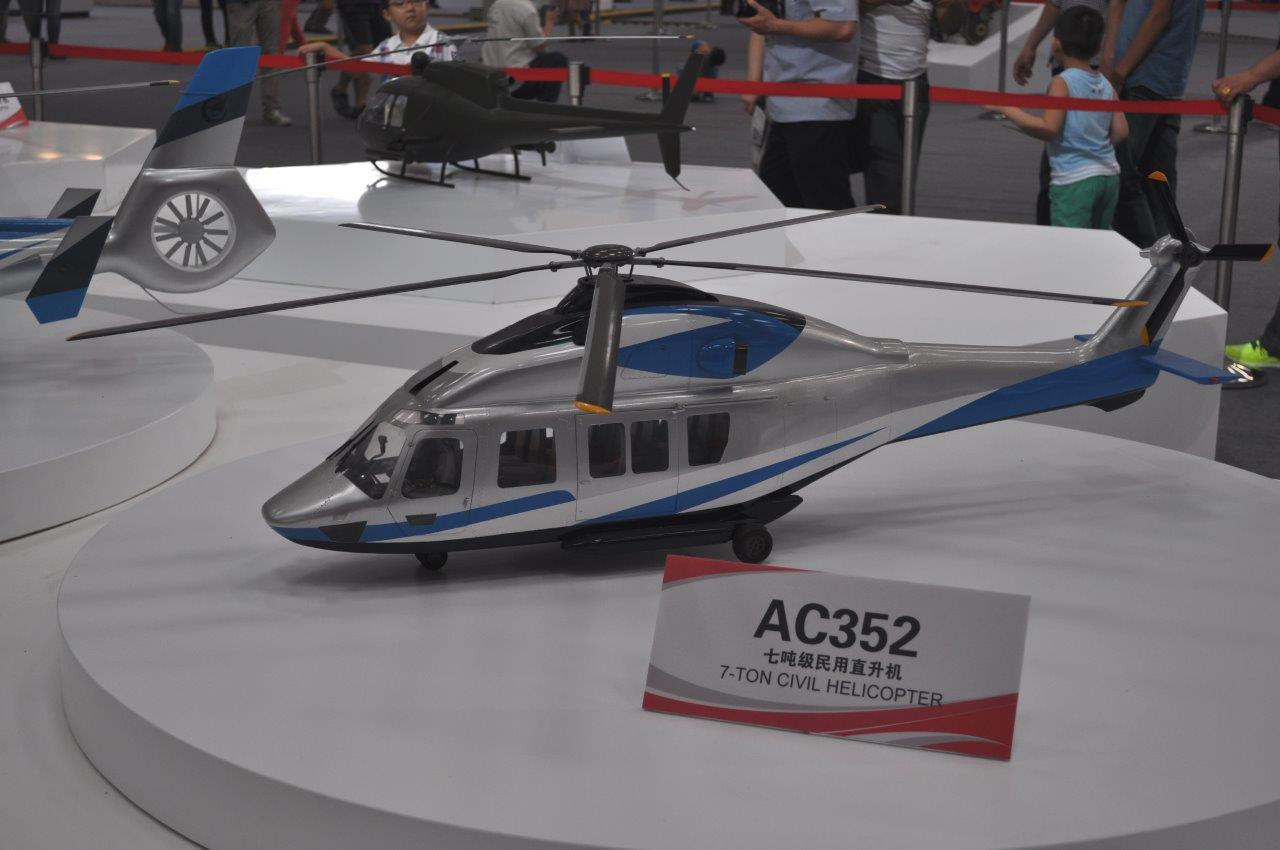China’s helicopter industry is gearing up to become a global power with a national strategy of civil-military integration, according to state-owned helicopter giant Avicopter.
China has a relatively complete helicopter industry with independent development capacity in key technologies, said Wu Ximing, chief designer of Avicopter, a subsidiary of China Aviation Industry Corporation (AVIC).
The cutting-edge technologies enabled China to produce heavy-lift, advanced high-speed attack and stealth helicopters, among others, says Wu, who is also chief designer of the WZ-10, or Thunder Fire, China’s self-developed modern military attack helicopter.
The “starry” WZ-10 is a model of armed helicopter which was designed primarily for anti-tank strikes and was first seen in public at the 2012 China Airshow.
Avicopter is planning to develop a high-speed tilt-rotor aircraft, capable of carrying heavier payloads and flying up to 500 km per hour, about twice the speed of current modern helicopters, over long distances.
“The technology spillover of China’s fast-paced military helicopter industry will surely boost the development of more civilian helicopters to meet commercial demand,” says Wu.
China’s helicopter industry gained international attention with the launch of a series of home-developed armed helicopters, such as the WZ-9, WZ-10, WZ-11 and WZ-19.
And the maiden flight of the new AC352 utility helicopter on December 20 showcased the country’s capacity to develop the world’s most advanced mid-sized civilian helicopter.
As China’s first 7-metric-ton class helicopter, AC352 was jointly developed by Avicopter subsidiary AVIC Harbin Aircraft Industry and Airbus Helicopters. The 50-50 “peer cooperation” started in 2006, says Lu Weijian, chief designer of the AC352.
The twin-engine helicopter capable of carrying 16 passengers with a 7.5-tonne maximum take-off weight, the AC 352 has a maximum range of 1,000 kilometers.
Its design focused on safety, economic efficiency and pilot-friendliness.
The AC352 is targeted at markets at home and abroad with multiple capabilities including offshore transport and medical or disaster rescue.
“China has become a strong player in the global helicopter industry. Only with superior resources can you gain the respect of global industry leaders and their cooperation,” says Yang Guangzhao, project manager of the AC352 at AVIC Harbin Aircraft Industry.
“Avicopter and Airbus Helicopter are together playing to our advantages in technologies and markets. Moreover, we are able to reduce business and technology risks in introducing a new model,” says Yang.
China’s helicopter industry now boasts aircraft classes from one to 13 tonnes.
Avicopter has mastered more than 50 models in 12 series of helicopters, with an annual production capacity of more than 300 helicopters.
“Avicopter is among the world’s seven leading helicopter manufacturers. In recent years, we have developed one new model nearly every two years,” says Avicopter chairman Yu Feng.
Avicopter forecasts China’s helicopter industry will develop at the same pace as global industry leaders over the next five to 10 years.
“We are going all out to meet the demand for more advanced helicopters for both military and civilian use. It is critical that we conquer key technologies, as well as succeed in business,” says Yu.










